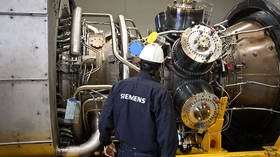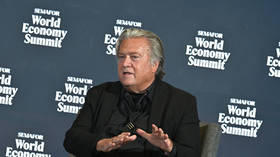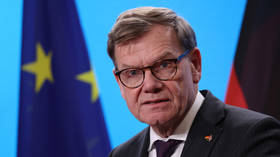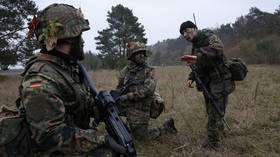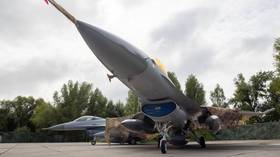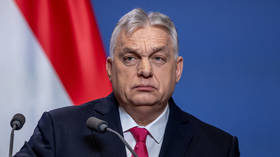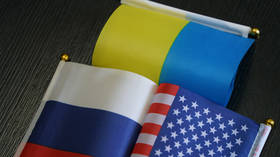Germany explains why it’s against full Russian gas embargo
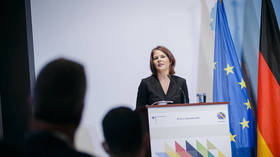
Germany cannot cut off all energy imports from Russia, Foreign Minister Annalena Baerbock admitted on Tuesday. Berlin needs to make sure of steady energy supplies to get through the winter, she explained.
The German government does not want to “repeat the mistakes” of the past and “make promises that we cannot keep,” the minister told a conference of the heads of German diplomatic missions, commenting on the cabinet’s continued opposition to a total embargo on Russian oil and gas.
We cannot give up on fossil fuels from Russia in a day.
Baerbock defended Germany’s decision to reduce its dependence on Russian energy supplies “step by step,” despite criticism from others in Europe.
The minister said that Germany had “never” really received cheap gas from Russia anyway, arguing it had paid a price with its own security by allowing the Russian state energy giant Gazprom to acquire infrastructure on its territory.
“The price [of gas] might have been favorable at certain moments,” she admitted, but the cheap prices led to Berlin’s “blind dependence” on Moscow, which Baerbock now regards as a “security risk.”
“We paid for every cubic meter of Russian gas double and triple with our national security,” she said.
The foreign minister also accused Russia of attempts to use this dependence to openly “blackmail” Germany into lifting sanctions imposed against Russia over its ongoing military operation in Ukraine.
Other EU leaders had previously accused Russia of blackmailing the bloc with its oil and gas exports, while also blaming Moscow for soaring energy prices. The Kremlin has rejected the claims, laying the blame on EU policies.
Gazprom “spent decades” earning its reputation as a reliable natural gas supplier, and has so far done nothing to tarnish it, Kremlin spokesman Dmitry Peskov told journalists last Sunday, blaming the ongoing energy crisis in Europe on “absurd” decisions by European politicians.
Since the start of Russia’s military offensive against Ukraine in late February, gas prices have climbed to record highs in Europe, driving up overall inflation. In late July, EU members agreed on a plan to reduce their gas consumption by 15% over the coming months to increase the bloc’s energy security at a time when it seeks to rid itself of its dependence on Russian energy.

